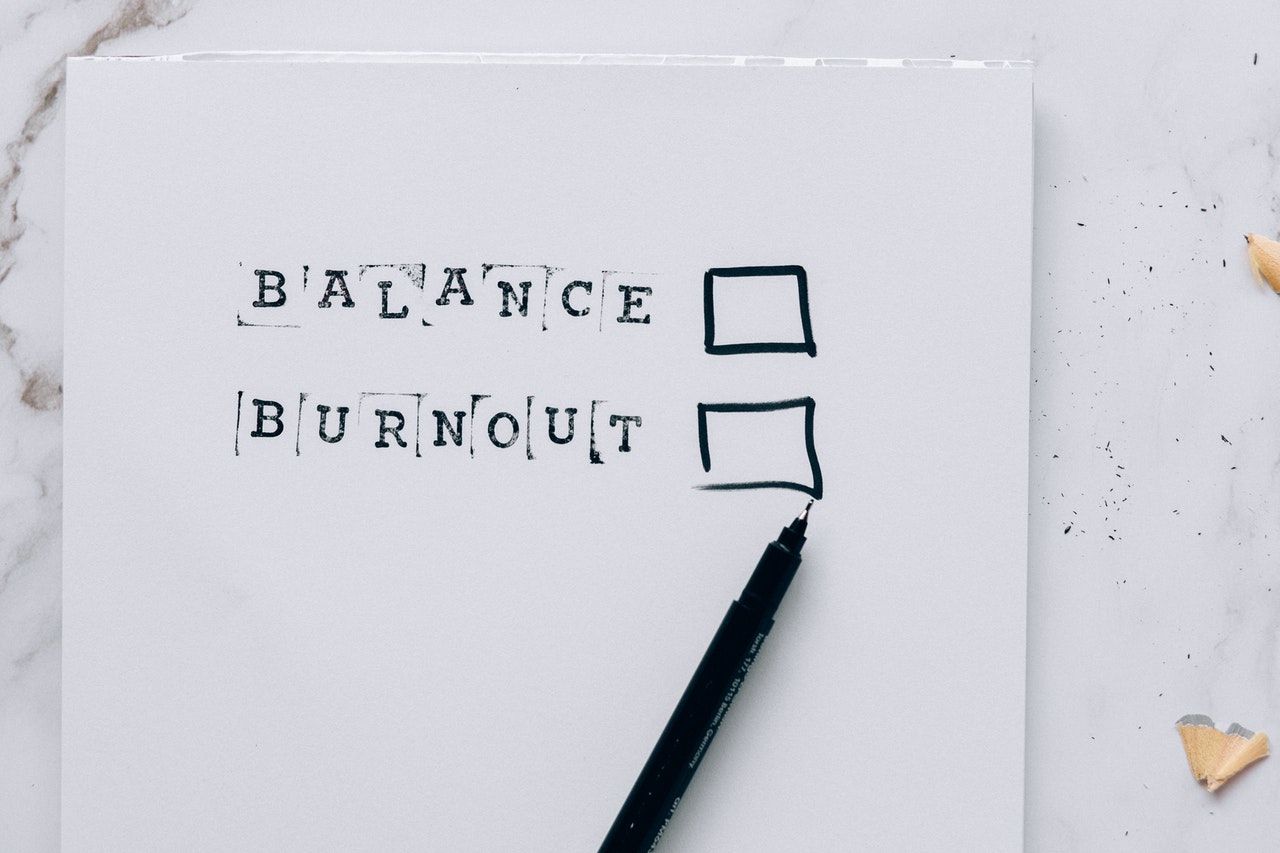According to a survey, 95% of human resource leaders in 2019 claimed that heavy workloads are causing employees to become burned out. Chronic stress is the cause of burnout, and the primary concern is how our system responds to the many stressors that accumulate on a daily basis.
Healthline states that distress causes physical issues such as “headaches, digestive issues, and sleep disturbances,” and psychological strains of “confusion, anxiety, and depression.” Prolonged chronic stress left unattended can affect your immune system and blood pressure, further developing into obesity and heart disease. Avoiding burnout means taking the necessary steps to combat stress and other health issues.
There are healthful and effective ways to deal with burnout, which can help prevent other health concerns from occurring. Take the pressure of frustrations off your shoulders by addressing one weight at a time and implementing stress-free, beneficial changes. No one is immune to stress, but we can build up our strength toward it and hopefully negate the many side effects that can develop into serious illnesses.
Stop Working on the Stressors and Begin Working on the Stress
The stress will not disappear no matter how many tasks you check off your list. Stress does not lessen when getting something done because there will always be another thing to accomplish. Tackling stress begins by mentally handling and acknowledging how our stressors make us feel. You can resolve stress by making appropriate lifestyle changes, no matter how big or small.
Take a Breather
Constantly asking yourself when you will ever get a break? Take it. Whether it is for one minute or one hour. Rest your mind when you begin feeling overwhelmed. Your body tends to crave what it needs, and if you sense it begging for a quick second to breathe, go ahead and take the time your body is asking for. Remember to not feel guilty about the minutes away from your duties as this only wastes your time of relief with a time of worrying.
Related: Breathe: How to Take a Mental Break
Schedule Your Life
Organization is a valuable use of your time. Some may think there isn’t enough time to sit down and implement structure, but you’ll find a gain of precious hours once you do it. Purchase a whiteboard or a notepad and plan out your daily responsibilities. There are even applications for sorting out your day hassle-free and on-the-go! Being busy does not cause burnout; not mentally staying on top of a busy schedule does. And don’t be afraid to completely drop activities or events in replacement of taking care of yourself, which leads us to our next course of action.
Related: How to Create the Best Morning Routine
Self-Care
Do what makes you happy. Relax your mind and rejuvenate your soul. Step out of your head and give yourself a moment that you truly desire. This can be a hobby, passion, or an activity you’ve wanted to do for quite a long time. The perfect moment to focus on yourself is when you feel the stress building and tasks becoming more overwhelming than usual. Remember, you’re only human, and your vessel needs to be paid attention to from time to time. This concept also applies to your mind needing to voice any bottled-up concerns and emotions. Take the time to reflect by keeping a journal.
Related: You NEED a Self-Care Toolbox in Your Life
Healthy Living
Proper nutrition, exercise, and an adequate amount of rest will help manage your mental and physical well-being. According to UCLA Center for East-West Medicine, a nutritious diet is vital for stress-reduction by “strengthening the immune system, stabilizing moods, and reducing blood pressure.” Reducing stress is also commonly found in exercise. Mayo Clinic mentioned many benefits of relieving stress with physical activity: the production of endorphins, alleviating adverse side effects, shedding daily tensions, mood improvement and helpful relaxant. The American Psychological Association heavily researched the impact of high stress and not getting enough sleep. Individuals reported feeling sluggish, irritable, depressed and more overwhelmed. Other common symptoms of inadequate sleep due to stress are having trouble concentrating, lack of motivation and losing patience.
Related: Mood and Foods
Reach Out for Support
Whether it be family, friends, or a community of like-minded individuals – lean on them. Especially in times when days feel too close together, and life is moving at warp speed. It’s normal to have moments where you feel that you cannot keep up with all that life throws your way, but you do not have to do it alone. Refocus your resilience.
Our Her Nexx Chapter Community invites you to join us where women are connecting with each other’s stories, exploring different experiences, and transforming ideas.
The Future of Connection for Women
Follow us:







